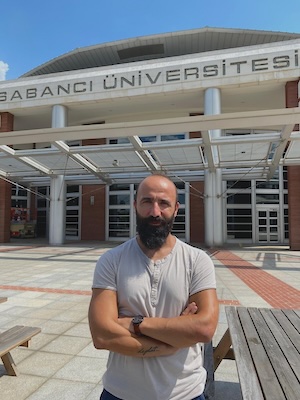Equals Online 2024: Reflections
Equals Online 2024
Reflections by Ali Aydın
Reflection on the Seminar: “Bust Language Learning Myths for Self-Directed Success” by Vladlena Tcherkachina
As an English instructor at a university, I am constantly on the lookout for innovative strategies to support my students' language learning journeys. In this regard, attending the seminar “Bust Language Learning Myths for Self-Directed Success” led by Vladlena Tcherkachina was both insightful and inspiring. Their approach to deconstructing language learning myths and providing a roadmap for self-directed success resonated deeply with me, especially her unique framework, GRIND RICE. This acronym—Goal setting, Research, Immersion, Nudging, Deconstruction, Revision, Interval Recycling, Communication, and Evaluation and Success—provides a comprehensive roadmap for self-directed language learning. Each component of GRIND RICE offered practical steps and encouraged a mindset shift for tackling language learning independently. Goal setting, as Tcherkachina emphasized, is crucial for clarity and motivation. Research encourages us to explore resources thoughtfully rather than jumping into random materials. Immersion and Nudging stood out as strategies to maintain consistent practice in everyday life, which I found particularly relevant. Nudging, in particular, is a reminder to create subtle reminders or triggers to stay engaged with the language— a strategy that I always encourage my students to embrace.
Each component of GRIND RICE offered practical steps and encouraged a mindset shift for tackling language learning independently. Goal setting, as Tcherkachina emphasized, is crucial for clarity and motivation. Research encourages us to explore resources thoughtfully rather than jumping into random materials. Immersion and Nudging stood out as strategies to maintain consistent practice in everyday life, which I found particularly relevant. Nudging, in particular, is a reminder to create subtle reminders or triggers to stay engaged with the language— a strategy that I always encourage my students to embrace.
Deconstruction and Revision brought a fresh perspective. Tcherkachina encouraged breaking down complex topics and reviewing them regularly, ensuring a gradual but consistent build-up of knowledge. Interval learning and Recycling align with spaced repetition, a technique proven to aid long-term retention. Finally, Communication and Evaluation and Success provided a holistic end to the cycle by emphasizing active language use and reflective practices to measure growth and celebrate milestones.
As a university English instructor, I found myself reflecting on the importance of each step in my own teaching practice. Immersion and Recycling, for example, resonate with my ongoing efforts to make English an integral part of students' daily routines. However, the seminar may encourage me to implement these steps more intentionally and consistently. In addition to all these, the Evaluation phase reminded me of the importance of periodically reviewing and adjusting my approach to maximize effectiveness. Tcherkachina’s insights emphasized the value of pacing and celebrating small milestones to maintain motivation over the long term, which is most undervalued by language learners as they crave radical progress in a radically short period. With this in mind, this is a perspective I look forward to integrating into my teaching strategies by highlighting their significance frequently as well.
GRIND RICE also has valuable implications for my role as an educator. The emphasis on Goal setting and Research mirrors project planning and syllabus design, while Deconstruction and Nudging encourage breaking down learning tasks and setting up cues for ongoing practice. Applying this framework could allow me to introduce a more structured approach to self-study for my students, helping them become more autonomous learners. Additionally, emphasizing Communication and Evaluation could help students take ownership of their language learning, encouraging them to engage actively and reflect on their progress.
Overall, the seminar provided a thought-provoking experience. Tcherkachina’s GRIND RICE framework not only challenges myths about language acquisition but also empowers learners to approach language learning with clear, achievable steps. Moving forward, helping students set meaningful goals, remain engaged, and celebrate their progress would be the main take-home message I could put into my pocket thanks to this nine-letter acronym which forms the pillars of Tcherkachina’s seminar.
